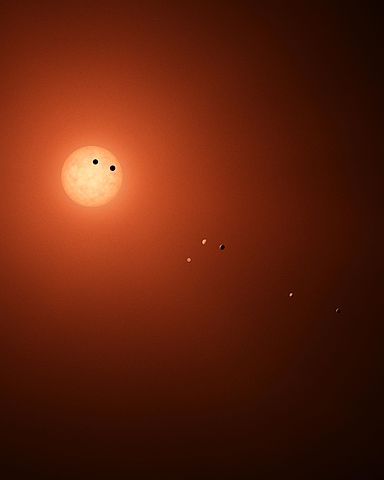Discover The Scientific Odyssey
The Scientific Odyssey

The Scientific Odyssey
Author: Dr. Chad Davies
Subscribed: 463Played: 5,178Subscribe
Share
© Author: Chad Davies. Content may be used for educational purposes with proper citation.
Description
An examination of scientific inquiry through a discussion of the history and philosophy of the scientific endeavor.
206 Episodes
Reverse
Unscripted thoughts on the landing of the Philae probe on comet 67P.
Some unscripted thoughts about the detection of gravitational waves by direct observation by LIGO. We briefly discuss some aspects of Einstein's Theory of Relativity, how interferometers work and what the significance of the detection is. We also look at how experimental science is done and communicated.
We take a look at NASA's JUNO Mission and the news of last night's successful orbital insertion as well as the science mission to come.
IN this impromptu and unscripted episode, I talk about the recent announcement of the discovery of severn earth-like world orbiting a nearby class M star now named TRAPPIST-1 after the telescope used to make the initial discovery. I look at how exoplanets are discovered, the specifics of this discovery, what we know and why it is important. Also discussed are the ideas of scientific collaboration and the concept of universality.
This week we take a look at weather forecasting after the Navigator's trip to Boulder, CO for the NASA Social event for the launch of the JPSS-1 polar orbiting satellite. We discuss a brief history of weather forecasting, the roles of both geosynchronous and polar orbiting satellites in that endeavor and the JPSS program. Specific attention is given to the five instrument packages that will be places on the vehicle: CrIS, ATMS, VIIRS, OMPS and CERES.
In this episode we take a look at the history of the development of the metric system out of the French Revolution.
Some recent media accounts have speculated that the red supergiant star in the constellation of Orion is about to explode in a cataclysmic supernova based on recent observations of the star's dimming brightness. We examine the evidence and offer a different explanation.
Wherein your Navigator discusses the CoVID-19 virus, the global pandemic, how public health and public policy response is formulated, and how to engage with the information and misinformation that's coming through various media channels.
In this anniversary celebration of our journey, we turn the canvas over to other voices to explore the intersection between inquiry in the sciences and the humanities.
For many of the crew of the Scientific Odyssey, the next couple of weeks promises to be stressful with the coming US Presidential elections, a rising number of CoVID-19 cases, and many difficult decisions related to school, work, and family. To help give folks a respite from the stormy seas ahead, we offer this episode of the podcast as a safe harbor to take refuge in when it all seems to be a bit overwhelming and it's time to furl the sails, if only for a little while.
In this special solstice episode fo the podcast, we embark on a winter journey through the writings of John Muir and David Henry Thoreau among others.
In this unscripted episode, we take a look at the announced results from the Muon g-2 experiment recently performed at the Fermi National Accelerator Laboratory. We examine what it means for the Standard Model of Particle Physics along with the importance of doing science with the goal of falsifying presently accepted models and theories rather than seeking confirmation.
This is the beginning, the pushing off, the setting out. It is here that the voyage commences and we set our sights on new horizons and far off vistas. This podcast is where I tell you what this whole thing's about: who your guide is, the vehicle we'll be traveling in and where we might be going. It's a journey with a thousand or more steps and this is the first one.
A discussion of why studying science is not only useful but necessary in today's world along with an explanation of inquiry and a brief tour of different fields and types of scientific research.
A discussion of three attributes that characterize scientific inquiry and distinguish it from from other types of research. This includes a discussion of of the three levels of information gathering and methods of scientific communication.
A discussion of the progress of scientific ideas from hypotheses to laws to theories. What makes each one different from the others and how does an idea start as a hypothesis and end up as a theory.
Tools and structures scientists use to move ideas forward and do scientific reasoning. Models and organizing principles are discussed as is serendipity. Basic reasoning structure is explained through deductive, inductive and abductive methods.
A discussion about some of the misconceptions people have about scientific inquiry and those who pursue it. Topics include creativity in science, the moral obligation of science and scientism.
In this episode we broaden our focus to consider critical thinking in a more comprehensive way by looking at what it is, why its such a valuable habit of mind to have and what types of activities contribute to making it such a powerful process.
"The fox knows many little things, but the hedgehog knows one big thing."-Archilochus We trace this quote from the Archaic Greek poet through the work of the philosopher Isaac Berlin to see how it applied to create good practices of critical thinking. Characteristics include having an inquiry focus, being flexible, understanding bias, practicing skepticism, using inference properly, and seeking multiple sources.
























